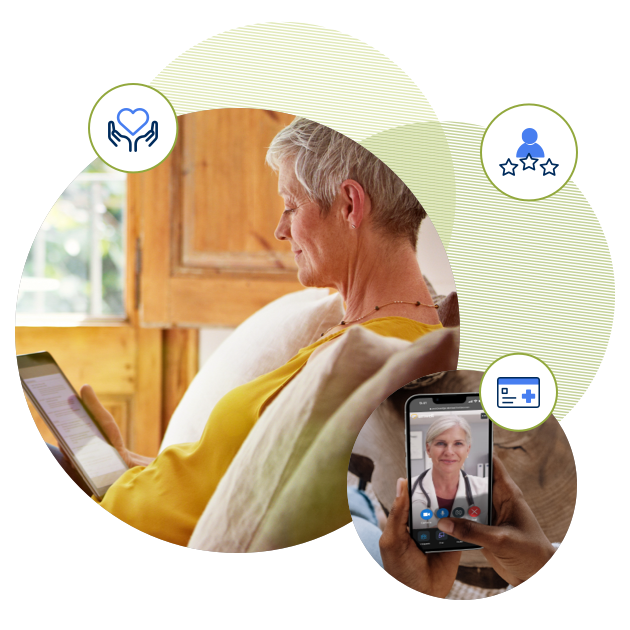Our Services Second Opinions Online
Get an online second opinion from Cleveland Clinic expert physicians with Second Opinions by Cleveland Clinic.

Have your diagnosis and treatment plan reviewed by an expert specialist from the world-renowned Cleveland Clinic. You’ll draw on 3,500 specialists with expertise in over 550 advanced subspecialties. No travel, travel costs, red tape, or other obstacles-it’s virtual.
- #1 Cardiology: #1 in the U.S. in cardiology and heart surgery by U.S. News and World Report since 1995
- #2 World Ranking: #2 in the world by Newsweek: World’s Best Hospitals 2020
- #2 US Ranking: Top 5 Hospitals in the U.S by U.S News and World Report

Get a Virtual Second Opinion when you are
- Diagnosed with a serious condition such as cancer
- About to make a major decision about a medical next step, such as surgery
- Considering a treatment that involves risk or has significant consequences
- Dealing with a condition or chronic illness that isn't improving or is getting worse
- Confused about or struggling with a medical challenge
What to expect using Amwell®
- Start an intake visit with a care manager. They’ll coordinate retrieval of your outside test results, images, and records.
- Our team will help collect all relevant information for your case.
- After we identify your appropriate specialist at Cleveland Clinic, you’ll have a one-on-one consultation with your specialist to discuss your second opinion, answer questions, and receive treatment recommendations.
Got Questions? We’ve Got Answers.
Care managers are available daily, including most weekends, to see you at home and get your second opinion process started. You can meet with a care manager in minutes or schedule an intake visit for a time convenient for you. Your manager will help coordinate your records, imaging, and test results.
After your intake visit, our care managers will help begin collecting your records. Once all your relevant information has been received at Cleveland Clinic, you’ll be matched with a Cleveland Clinic physician expert in that specialty. Once your specialist reviews your results, you’ll receive a one-on-one consultation with your specialist who can discuss your second opinion, answer questions, and provide recommendations for care.
- Open the Virtual Second Opinions by Cleveland Clinic app or web platform, or download the app on the App Store or Google Play.
- Choose the “Virtual Second Opinions” practice found in the specialty services section.
- Start an intake visit with the care manager of your choice in minutes or schedule a visit for a time that is convenient for you.
- Provide details about your records, imaging, and test results so your Cleveland Clinic specialist can review your information.
- Have a one-on-one educational consultation with your dedicated Cleveland Clinic specialist who can discuss your second opinion and provide recommendations for care.
Care managers are available daily, including most weekends, to see you at home and get your intake visit started. The process begins during your intake visit, and the manager will collect all of the relevant records and images for your case. Depending on the complexity of your case, and where you may have had previous testing, record collection varies in length and impacts the time to render the opinion. Our team’s focus is to take the burden off of you, and we will do our best to facilitate the collection of your records in a timely fashion. Cases are generally completed in under two weeks (and less where medically indicated).
The service is not covered by insurance.
